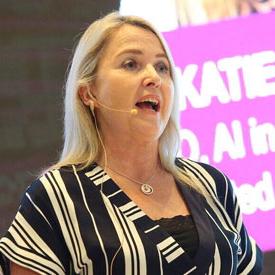Carissa Véliz is a leading authority on ethics in technology and data privacy, serving as an Associate Professor at the University of Oxford's Institute for Ethics in AI. Known for her profound insights into the ethical dimensions of emerging technologies, Carissa has made significant contributions to understanding how digital systems impact privacy and public policy. As an editor of the "Oxford Handbook of Digital Ethics" and a member of the International Advisory Council on AI for Spain, she is deeply engaged in shaping the discourse around AI ethics on a global scale.
In addition to her academic roles, Carissa is a prolific author, with her book "Privacy is Power: Why and How You Should Take Back Control of Your Data" garnering widespread acclaim and being named an Economist Best Book of the Year in 2020. This work highlights the pressing issues of data privacy and the exploitation of personal information by large tech corporations and governments. Through her writing and public speaking, she educates the public on the critical importance of protecting personal data in the digital age.
Beyond academia and writing, Carissa Véliz is actively involved in advising both public and private sectors on ethical technology practices. She has served as a board member for the Proton Foundation and participated in drafting Spain's Digital Rights Charter as part of the Group of Experts. Her engagement with government bodies includes advising the UK House of Lords and the US Congress on matters of digital ethics and privacy, underscoring her influence and expertise in policy-making circles. She is also the author of "The Ethics of Privacy and Surveillance".
Carissa’s commitment to ethical AI is also reflected in her role with UNESCO's Women 4 Ethics of AI initiative, which aims to promote trustworthy AI systems. Her work has been recognised with prestigious accolades, including the Herbert A. Simon Award for Outstanding Research in Computing and Philosophy. As a keynote speaker, she brings a wealth of knowledge and a compelling vision for a future where technology serves humanity ethically and responsibly. Her talks are not only informative but also inspire action towards greater awareness and regulation in the field of digital ethics.









